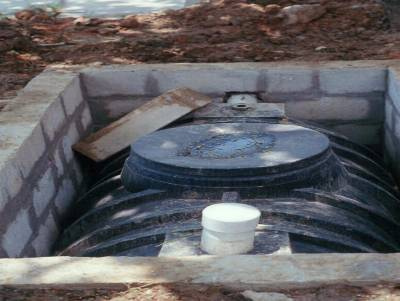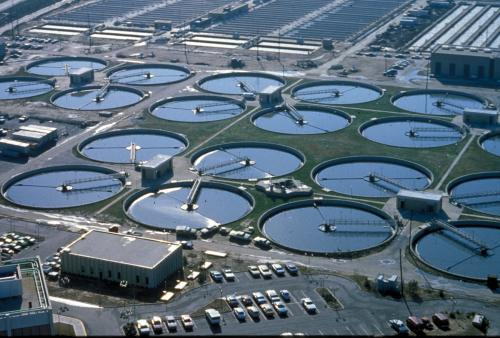Say, you are planning to buy a property and have questions like:
Should I buy a house with a septic tank?
Or, should I opt for a house with sewer lines?
How can you go about making the decision? You first need to know what both are and what are the differences between the two. Only then can you make a relevant decision as per your requirements.
So let us begin by asking the two fundamental questions:
What is a Septic Tank?
A septic tank is a mini structure, typically underground, made of fiberglass, concrete, plastic or PVC. It uses bacterial activity for decomposing the waste or sewage and is used for wastewater treatment in houses.

You could say that it is a small scale sewer system mostly used in regions which do not have a connection to the sewage pipes provided by the government.
What is a Sewer System or a Sewage Treatment Plant?
A sewage treatment plant or sewer uses a 3-stage process to treat and remove pollutants from waste or sewage from houses. It aims to produce sewage water and effluent that is environment-friendly.

Now that we have answered the two principal questions here, let us move on to the difference between them.
So, how can you differentiate between a septic tank and a sewer?
| Points of Difference | Septic Tank | Sewer System |
| Working Mechanism | A septic tank uses bacterial activity. They help break down the solid waste. Then the liquid effluent is released into the drain field. | Biological, chemical & physical processes are used to remove contaminants from wastewater, which is safer for the environment. The solid & semi-solid waste go through further treatment before being released. |
| What happens to the waste? | Since the treated wastewater is not environment-friendly, it goes into a holding tank. | The sewer lines in a sewer treatment plant carry the waste to a treatment facility. |
| Cost Factor | A septic system, typically for a 3-bedroom apartment, costs around Rs. 5,000 in India. It may go up as per your requirements. | The cost of a public sewer system varies according to the place. It, of course, also depends on the area covered by it. |
| Maintenance | As far as septic tank maintenance is concerned, it is required to be pumped every 3 to 5 years. Moreover, conducting a thorough inspection will tell you how often maintenance is required. | It requires less maintenance when compared to the septic tanks in terms of both, frequency and efforts. |
| Responsibility of Maintenance | Since it is typically for individual houses, the house owner is responsible for the maintenance of a septic tank. | Since it is a public sewer system, the local municipality is responsible for its maintenance. |
For a better understanding, let us take up the pros & cons of a septic tank and sewer system.
Septic Tank – Pros & Cons
Advantages of Septic Tank
- Since they do not require power or chemicals for the cleaning of wastewater, they are more eco-friendly.
- Since they are personally liable for the upkeep and maintenance, house owners who have a septic tank in their home are more responsible.
Disadvantages of Septic Tank
- They are more sensitive to solid waste and can be damaged relatively easily.
- They require frequent maintenance when compared to the sewer systems.
Sewer System – Pros & Cons
Advantages of Sewer System
- They require comparatively less maintenance.
- They are less prone to damage by solid waste when compared to septic tanks.
Disadvantages of Sewer System
- The upgrades for sewer system can put a serious dent in your pocket. Further, you have to pay for using it similar to electricity payment.
- Besides, the house owner is responsible for the repairs and maintenance of sewer line that connects the house.
Which One is Better – Septic Tank or Sewer System?
Well, the answer to this question depends on various factors and can vary from person to person.
So, it would be wise to analyze your requirements in line with the pros and cons of each before coming to any conclusion.
If you have any queries regarding septic tank like septic tank construction, maintenance, cost, and so forth, please do not hesitate to contact us.

